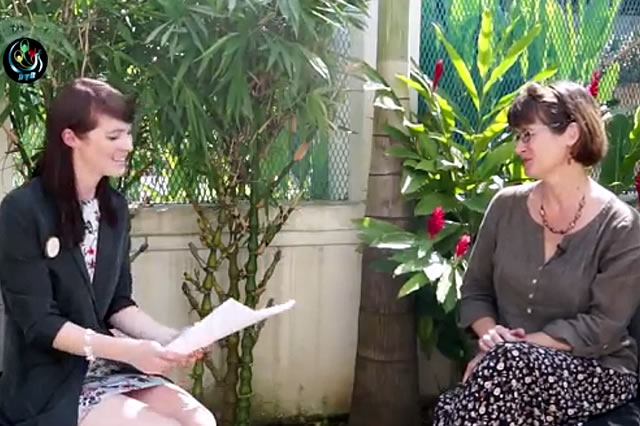DVB talks to Vicky Bowman, Director of MCRB

DVB Interview International spoke to Vicky Bowman, the Director of the Myanmar Centre for Responsible Business (MCRB) about the centre’s work, ways in which companies can adopt responsible business practices and how to tackle issues such as corruption and human rights.
The centre is currently conducting sector-wide impact assessments in the oil and gas and tourism industries. Next year the MCRB aims to complete impact assessments for telecoms and the agriculture sector. Bowman said these impact assessments identify positive and negative impacts in a sector and that the centre will make recommendations to the government, to businesses and to civil society, on how to reduce negatives in the future.
Bowman said the MCRB is working with local and international companies, civil society groups and the government to encourage responsible business activities.
“One of the big challenges for businesses here is that laws that exist in other countries, which prevent businesses from behaving irresponsibly don’t yet exist here,” said Bowman. “So we’re encouraging the government to adopt those laws and adopt them in a transparent process.”
One of the ways the MCRB is promoting responsible business is by making connections between international and local companies. Bowman said they were seeking to provide knowledge, build capacity and promote dialogue for businesses already in the country, and those interested in investing.
“When international companies come to us it’s the first thing they want to know – who are the local businesses who will understand the anti-corruption regulations that we have to follow? Who are the local businesses that will not be a reputational risk for us?” she said.
“The advice we provide is a public good and some of the research and advice we are doing is going to be put on our website and will be made available to anyone who is interested in investing here or holding companies to account,” said Bowman.
One of the main issues the centre is working on is transparency. Bowman said companies benefitted from being transparent through choice and not just because the law requires them to.
“[The companies] are going to get much more trust from both civil society and international partners if they make public information about who their ownership is, what sectors they are in, what their group structure is, how much tax they pay and also issues like what their human rights policy is, what their core human rights risks are, what they are doing, for example, around the land they are acquiring,” said Bowman.
Bowman said companies owned or joint-owned by the military are the centre’s biggest challenge and she felt they should be held to the same standards as other companies.
“Overall what I think the country needs to move towards is a world in which if they continue to exist they should be held to the same account as any other company and should be required to compete on a level playing field,” she said.
The government adopted an anti-corruption law in August and parliament is currently discussing how to make it more effective. Bowman said to help fight corruption in companies the culture of giving tea-money and gifts needs to stop.
“When a large company, whether it be an oil and gas company or Coca-Cola, says this is what we need from our companies that we work with about not paying gifts. It would be really important if the government departments concerned say “absolutely, this it the change we want to see,’” she said.
She went on to say that in some cases it was not necessarily about laws but about cultural change.
Rights groups have slammed big investment projects for continue human rights abuses, including land confiscation and environmental damage.
Bowman said these big investment companies need to carry effective impact assessments that look at human rights and social issues and conduct proper consultations with villagers.
“The company needs to get a better understanding of what the community feels about the project,” she said.
“The farmers and villagers need to have some sort of decision making input into these projects, it can’t be all done to them.”
ဆက္စပ္ေသာ အေၾကာင္းအရာ
- Statement on the Release of Vicky Bowman by the Directors of the Myanmar Centre for Responsible Business
- Statement by the Directors of the Myanmar Centre for Responsible Business
- Statement on the Arrest of Vicky Bowman
- Vicky Bowman interviewed in Euromatters
- MCRB director discusses Myanmar FDI and development in light of the Rakhine crisis
 English
English မြန်မာ
မြန်မာ မြန်မာ (unicode)
မြန်မာ (unicode)










